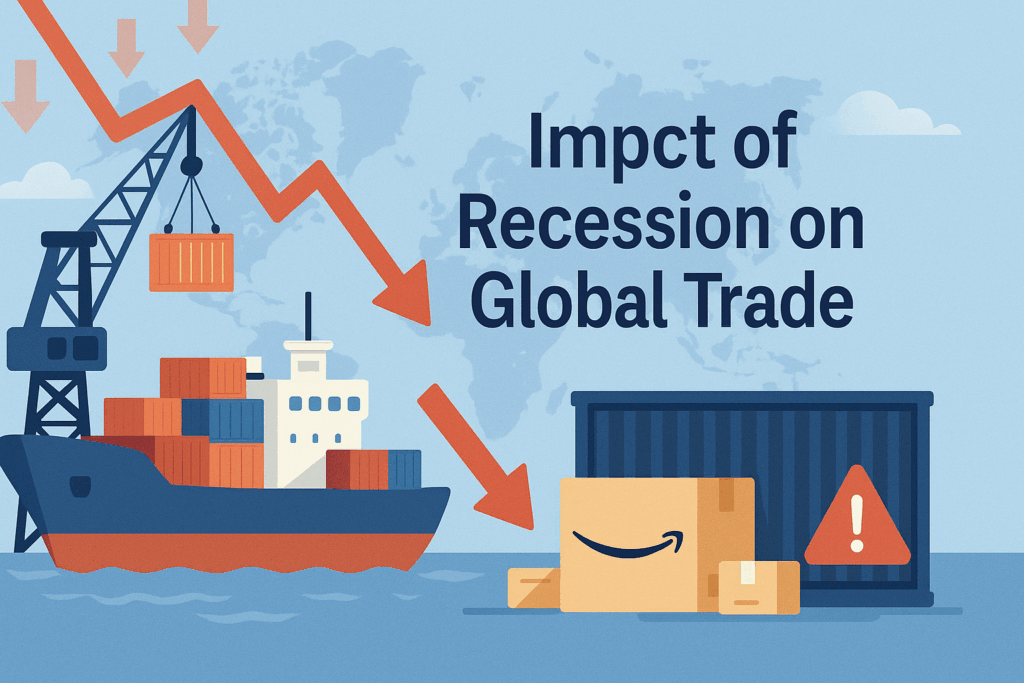Let’s start with the obvious: recessions suck. Jobs disappear, wallets tighten, and everyone suddenly pretends to be a budget expert. But there’s a bigger picture here—one that spans continents, containers, and cargo ships. We’re talking about the hit global trade takes when the world’s economy goes into a nosedive. And spoiler alert: it’s not just about numbers on a spreadsheet. It’s about your iPhone parts, your favorite snacks, and whether that IKEA bookshelf actually arrives before you give up and buy something else.
Welcome to the wild ride of recession and its ripple effects on global trade.
When the World Coughs, Trade Gets a Cold
A global financial crisis doesn’t just mean Wall Street traders start panicking into their third espresso. It means countries spend less, people buy less, and businesses freeze. Global trade—basically the highway of goods moving across borders—slows down big time.
Why? Because trade is demand-driven. If fewer people are buying cars, shoes, or fancy coffee makers, there’s no point in shipping them across oceans. Factories cut production. Ports sit quieter. And suddenly, your local store doesn’t have your favorite brand of pasta sauce.
Supply Chain or Supply Pain?
Now enter the mighty supply chain—the real MVP of global trade that most people ignored until COVID hit. It’s a complex web that moves stuff from one country to another through ships, trucks, planes, and about a dozen checkpoints. When a recession hits, this network becomes a headache.
Let’s say a car needs parts from Germany, Japan, and Mexico. If just one of those economies tanks, the whole operation slows down. Production stalls. Jobs get cut. And instead of a shiny new car, someone ends up Googling “used bikes near me.”
Recessions make companies nervous. They stop investing in new equipment, delay shipments, or renegotiate contracts. And since supply chains rely on smooth, predictable flows, any hiccup—especially one involving money—throws the whole system off.
Import/Export: Not Just Boring Words on a Customs Form
Import/export activity is like the pulse of global trade. If it’s strong, the world is buzzing. If it’s weak, something’s wrong. In a recession, imports (what a country buys from others) and exports (what it sells) both drop like a rock.
Here’s how it plays out: A recession in the U.S. means American consumers spend less. So imports from China, Mexico, and Germany go down. Meanwhile, U.S. exports slow too, because other countries facing their own financial mess aren’t buying either. It’s a lose-lose. And since trade is deeply interconnected, a slowdown in one major economy creates a domino effect globally.
So What’s the Human Impact?
You might be thinking, “Okay, global trade slows. So what?” Well, here’s the so what:
- Prices go up. Fewer goods mean higher demand. Higher demand means your new phone might cost $100 more.
- Jobs are lost. Millions of jobs worldwide are tied to trade—factory workers, truck drivers, port operators. When trade slows, layoffs start.
- Choices shrink. Your favorite foreign snacks might disappear from shelves. And good luck finding that one Italian wine you swore you’d only drink now.
A Recession Isn’t Just an Economic Event—It’s a Trade Earthquake
What makes a recession really sting is that it hits the engine of globalization. Businesses that once looked outward suddenly turn inward. Countries start pushing “buy local” campaigns. Protectionism rises. Suddenly, international cooperation gives way to economic self-defense.
That’s how a financial crisis morphs into a global trade crisis.
Can the World Bounce Back?
Yes—but it takes time, trust, and sometimes a little reinvention. After every major recession, trade patterns shift. Countries reassess their dependencies. Companies diversify supply chains. And slowly, confidence returns.
We saw it after the 2008 financial crisis. We’re seeing it again post-COVID. The real question is: will the next recession spark smarter trade strategies—or just more chaos?
Final Thoughts: Why This Matters to You
Global trade might feel distant, like something politicians and economists should worry about. But it affects you every day—on your shelves, in your budget, and in your job prospects. A recession messes with that flow. It’s like throwing a wrench into the gears of a very large, very complex machine.
So the next time your online order gets delayed or a product vanishes from the store, just know: somewhere, someone’s dealing with a global recession—and your dinner plans got caught in the crossfire.


